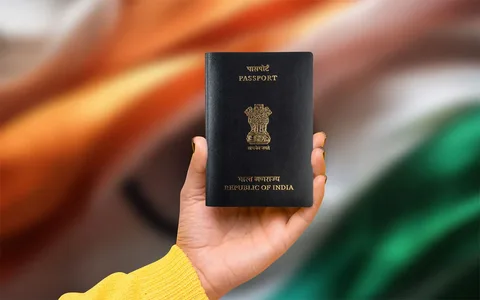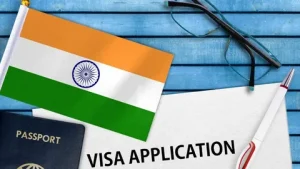Travel & Hospitality
Conquering the World Together Travel Tips for Couples

Traveling as a couple can be one of the most rewarding experiences, offering opportunities to strengthen your relationship, create lasting memories, and explore new horizons together. However, it also comes with its own set of challenges. To help you navigate these, we’ve compiled a comprehensive guide filled with professional tips for traveling as a couple. Effective communication is the cornerstone of any successful relationship, and this is particularly true when traveling. Discuss your travel preferences, budget, and expectations well in advance. Make sure both partners feel heard and understood. Regular check-ins during the trip can help address any issues before they escalate.
Plan Together
Involving both partners in the planning process ensures that the trip meets both of your interests and needs. From selecting the destination to planning daily activities, make decisions together. This collaborative approach can prevent misunderstandings and ensure that both partners are equally excited about the journey.

Image by yandex.com
Set a Budget
Money can be a significant source of stress while traveling. Establish a budget that covers all aspects of the trip, including accommodation, food, activities, and emergency funds. Stick to this budget to avoid financial strain and disagreements.
Divide Responsibilities
Divide tasks based on each partner’s strengths and interests. One person might handle booking flights and accommodations, while the other could plan activities and meals. This division of labor can make the planning process more efficient and enjoyable.
Be Flexible
Travel plans can change unexpectedly due to various factors like weather, transportation issues, or personal preferences. Being flexible and adaptable can help you navigate these changes smoothly. Remember, the goal is to enjoy the journey, not just the destination.
Respect Each Other’s Space
Spending a lot of time together can sometimes lead to friction. It’s essential to respect each other’s need for personal space and downtime. Whether it’s taking a solo walk or spending a few hours apart, giving each other space can help maintain harmony Compromise is crucial when traveling as a couple. You might not always agree on what to do or where to go, but finding a middle ground can make the trip enjoyable for both partners. Take turns in choosing activities or destinations to ensure a balanced experience.
Prioritize Safety
Safety should always be a priority. Research your destination thoroughly, understand local customs, and be aware of any potential risks. Share your itinerary with a trusted friend or family member and have a plan in place for emergencies.
Capture Memories
Documenting your journey can be a wonderful way to relive the memories later. Take photos, keep a travel journal, or create a scrapbook. These mementos can serve as a reminder of the special moments you shared.

Image by yandex.com
Embrace the Unexpected
Sometimes, the best travel experiences come from unplanned moments. Embrace the unexpected and be open to new experiences. These spontaneous adventures can often bring you closer together and create unforgettable memories.
Maintain a Positive Attitude
Traveling can be stressful, and things might not always go as planned. Maintaining a positive attitude and a sense of humor can help you navigate challenges more effectively. Focus on the positive aspects of your journey and enjoy the time spent together.
Seek Local Experiences
Engaging with local culture can enrich your travel experience. Try local cuisines, participate in cultural activities, and interact with residents. These experiences can provide a deeper understanding of the destination and create lasting memories.
Plan for Downtime
While it’s tempting to fill your itinerary with activities, it’s essential to plan for downtime as well. Taking breaks can help you recharge and prevent burnout. Use this time to relax, reflect, and enjoy each other’s company.
Celebrate Milestones
Whether it’s an anniversary, birthday, or simply a special moment during the trip, take the time to celebrate milestones. These celebrations can add a special touch to your journey and strengthen your bond.

Image by yandex.com
Reflect on Your Experience
After the trip, take the time to reflect on your experience together. Discuss what you enjoyed, what you learned, and how you can improve future trips. This reflection can help you grow as a couple and enhance future travel experiences.Traveling as a couple can be a beautiful journey filled with adventure, learning, and growth. By following these professional tips for traveling as a couple, you can ensure a harmonious and enriching experience that strengthens your relationship and creates lasting memories.
Conculsion
Traveling offers countless opportunities for learning and personal growth. Embrace these experiences and use them to grow as individuals and as a couple. Reflect on your journey and the lessons learned along the way.: Finally, remember to celebrate each other. Traveling together is a testament to your partnership. Acknowledge each other’s efforts, support, and companionship. By following these tips for traveling as a couple, you can create a harmonious and memorable travel experience. The journey will not only bring you closer but also provide a wealth of shared memories that will last a lifetime. Happy travels!
Development
Indian Visa Process for Guatemalan and Guinean Citizens

India is a diverse destination attracting travelers for tourism, business, medical care, and cultural exploration. Citizens from Guatemala and Guinea who wish to visit India must understand the visa requirements and application process in advance.
Using official online resources for the Indian Visa for Guatemalan Citizens and the Indian Visa for Guinean Citizens helps applicants determine eligibility, required documents, and the correct visa category, making the entire process smoother and more reliable.

Understanding the Indian e-Visa System
India has introduced an electronic visa system to simplify travel for foreign nationals. The e-Visa allows eligible travelers to apply online without visiting an embassy, saving time and effort. Both Guatemalan and Guinean citizens can benefit from this digital process if they meet the eligibility criteria.
The Indian e-Visa is available for multiple purposes, including tourism, business, medical treatment, and conferences. Each visa type has specific conditions regarding validity, number of entries, and permitted activities.
Indian Visa for Guatemalan Citizens
The Indian Visa for Guatemalan Citizens enables travelers from Guatemala to enter India for short-term stays. Applicants must ensure they apply under the correct category based on their travel purpose.
Key points for Guatemalan citizens include:
• A passport valid for at least six months from the date of arrival in India
• A recent digital photograph and a scanned passport bio page
• Accurate personal and travel details during the online application
Guatemalan applicants are advised to apply well in advance of their intended travel date to allow sufficient processing time.
Indian Visa for Guinean Citizens
The Indian Visa for Guinean Citizens is designed to facilitate travel from Guinea to India for approved purposes. The application process is similar to that for other eligible nationalities, with a strong emphasis on document accuracy.
Important considerations for Guinean citizens include:
• Ensuring passport validity and clear scanned copies
• Selecting the correct e-Visa category
• Providing truthful and complete information in the application form
Careful preparation reduces the likelihood of delays or rejections.
Types of Indian Visas Available
Indian visas are categorized based on travel intent. Common options include:
- Tourist Visa – For sightseeing, cultural visits, and leisure travel
- Business Visa – For meetings, trade activities, and professional engagements
- Medical Visa – For receiving treatment at recognized Indian hospitals
- Conference Visa – For attending government-approved conferences
Applicants must choose the visa type that best matches their travel purpose to avoid complications.
Required Documents for Application
Although specific requirements may vary slightly, most applicants will need to prepare the following documents:
- Valid passport with sufficient validity
• Recent passport-size photograph in digital format
• Proof of travel plans, such as return tickets or accommodation details
• Supporting documents related to the chosen visa category
Having these documents ready before starting the application ensures a smoother submission process.
Step-by-Step Application Process
The Indian e-Visa application process is straightforward and user-friendly. It generally involves:
- Completing the online application form
• Uploading required documents
• Paying the visa fee securely online
• Receiving the approved e-Visa via email
Applicants should review all entered details carefully before final submission.
Tips for a Successful Indian Visa Application
To improve the chances of approval and avoid delays, applicants from Guatemala and Guinea should follow these tips:
- Double-check spelling of names and passport numbers
- Upload clear, high-quality document scans
- Apply at least a few weeks before travel
- Keep a copy of the approved e-Visa for presentation upon arrival
These simple steps can make a significant difference in the overall experience.
Benefits of Applying Online
The Indian e-Visa system offers several advantages:
- Convenience of applying from anywhere
- Faster processing compared to traditional visas
- Reduced paperwork and embassy visits
- Transparent tracking and official confirmation
This makes online application the preferred choice for modern travelers.
Application Process and Required Documentation
The application process for both the Indian Visa for Ghanaian Citizens and Indian Visa for Grenadian Citizens is straightforward but requires attention to detail. Applicants must complete the online form accurately and upload clear digital copies of required documents.
Standard Documentation Requirements
- Valid passport with sufficient remaining validity
- Recent passport-sized photograph
- Scanned copy of passport bio-data page
- Additional documents depending on visa type
Providing accurate information is critical, as inconsistencies can result in processing delays or rejection. It is strongly recommended to submit applications well in advance of the intended travel date.
Important Travel and Compliance Guidelines
Once approved, travelers should carry a copy of their e-Visa approval during their journey. Immigration officials may verify visa details upon arrival. Visitors must adhere strictly to the purpose of travel stated in their application and respect Indian laws and local customs.
Overstaying a visa or engaging in unauthorized activities can lead to penalties, fines, or future travel restrictions. Awareness and compliance help ensure a smooth and enjoyable stay in India.
Advantages of Using Trusted Visa Information Platforms
Using an authorized visa information platform helps applicants understand eligibility criteria, avoid common mistakes, and follow the correct procedures. Clear guidance, updated requirements, and structured information reduce uncertainty, especially for first-time travelers.
Conclusion
The Indian Visa for Ghanaian Citizens and Indian Visa for Grenadian Citizens provide a convenient and efficient way to travel to India for tourism, business, or medical purposes.
By choosing the appropriate visa category, preparing accurate documentation, and complying with visa conditions, travelers can enjoy a seamless entry process and a rewarding experience in India. Proper planning and informed decisions are key to a successful journey.
Business
Business Visa Australia: Pathway to Success in this Economy

Australia has long been a preferred destination for entrepreneurs, investors, and business owners seeking access to a stable economy, transparent legal system, and strong international trade links.
With its innovation-driven markets and supportive commercial environment, the country offers genuine opportunities for people who want to establish or expand business ventures while building a long-term future.
A Business Visa Australia pathway is designed specifically for individuals who wish to own, manage, or invest in Australian businesses. These visas are structured to attract capital, skills, and global experience that can contribute to economic growth. Whether your goal is to launch a startup, develop a commercial enterprise, or invest in an existing company, Australia provides several structured options to support business migration.

Understanding Australia’s Business Migration Program
Australia’s business migration framework is part of the broader skilled and economic migration system. It focuses on attracting people who can demonstrate genuine business ability, investment history, and a commitment to participating in the Australian economy. Unlike standard work visas, business visas are not limited to a single employer. Instead, they emphasize ownership, management, innovation, and long-term economic contribution.
Applicants are generally assessed on factors such as age, English language ability, business background, financial assets, investment history, and innovation potential. State and territory governments also play a major role by nominating candidates who match their regional or sector-specific priorities.
Key Streams Available for Business Migrants
Australia offers several streams under its business and investment program, each catering to different commercial profiles. These commonly include:
Business Innovation Stream
Designed for entrepreneurs who want to establish, develop, or manage a new or existing business in Australia. Applicants usually need to show business turnover, ownership experience, and a viable proposal that aligns with state or territory priorities.
Investor Stream
Significant Investor Stream
This stream focuses on high-net-worth individuals who can place a large investment into complying Australian funds or businesses, contributing to innovation and economic growth.
Entrepreneur Stream
Intended for startup founders who have secured funding from an approved Australian entity and wish to commercialize an innovative idea.
Each stream has its own financial thresholds, nomination criteria, and performance expectations, making it essential to select the option that best reflects your background.
The Role of the Subclass 888 Visa
Many business migrants begin their journey on a provisional business visa and later progress to permanent residency. A central permanent option is the Business Innovation and Invest Visa (Subclass 888) Australia, which allows eligible holders of provisional business visas to transition to permanent resident status.
This visa stage assesses whether the applicant has met business or investment commitments during their provisional period. Typical considerations include maintaining ownership interest, achieving required business turnover, meeting investment obligations, and demonstrating genuine ongoing involvement in Australian commercial activity.
Once granted, this permanent visa provides unrestricted work rights, access to social benefits, and the long-term security that allows business owners to expand operations, invest further, and integrate fully into Australian society.
Nomination by States and Territories
Business migration in Australia is closely linked to state and territory nomination. Each region sets specific criteria based on its economic development goals. Some states focus on innovation and technology, while others prioritize agriculture, tourism, construction, or export-driven enterprises.
Nomination requirements may include:
- A detailed business proposal or investment plan
- Evidence of funds available for settlement or investment
- Demonstrated experience relevant to the proposed activity
- Commitment to operating in the nominating state or territory
Because these criteria vary significantly, applicants should carefully research regional programs and align their commercial objectives accordingly.
Financial and Business Expectations
Applicants are typically expected to show more than just available funds. Authorities look for a history of successful business ownership or investment, along with the capacity to actively participate in commercial operations.
Common financial and operational expectations include:
- Lawfully acquired assets
- Evidence of past business success or investment performance
- A credible business model or investment strategy
- Willingness to employ Australians or contribute to regional development
These elements help assess whether the applicant can realistically meet obligations after arrival.
Application Process Overview
Although details vary by stream, most business visa pathways follow a structured process:
- Initial Assessment and Planning
Applicants evaluate eligibility, select the appropriate stream, and prepare supporting financial and business documents. - Expression of Interest (EOI)
A formal profile is submitted outlining business experience, assets, and intended activities. - State or Territory Nomination
Interested regions assess the proposal and may nominate suitable candidates. - Invitation to Apply
After nomination, the applicant receives an invitation to lodge a visa application. - Visa Application and Documentation
Detailed evidence is submitted, including financial records, business ownership documents, English language results, and health and character checks. - Decision and Compliance Period
If granted a provisional visa, the applicant operates their business or investment and later applies for permanent residency when criteria are met.
Timelines can vary widely, making early preparation and accurate documentation crucial.
Life as a Business Migrant in Australia
Business migrants often find Australia supportive of commercial development. There is access to modern infrastructure, skilled labor, international markets, and a robust legal framework that protects intellectual property and commercial rights.
New arrivals typically engage with local business chambers, innovation hubs, and regional development agencies that offer networking, mentorship, and market insights. These resources can be invaluable, especially for those unfamiliar with Australian regulatory and commercial practices.
Common Challenges and How to Avoid Them
While Australia offers strong opportunities, business migration is complex. Some common issues include:
- Submitting unrealistic business proposals
- Underestimating operating costs or compliance requirements
- Failing to meet nomination commitments
- Poor financial record-keeping
Clear planning, realistic forecasting, and professional advice can significantly reduce these risks. Applicants should treat the process not only as a migration pathway but also as a serious commercial venture.
Meeting Ongoing Obligations
After visa grant, business migrants are expected to actively engage in their enterprise or investment. Authorities may review business performance, investment compliance, and residence history before granting permanent status.
Understanding Business Visa Australia Requirements early allows applicants to structure operations in a way that supports both commercial success and migration outcomes. Careful record management, tax compliance, and ongoing engagement in the business are all critical to long-term success.
Conclusion
Australia’s business migration program offers ambitious entrepreneurs and investors a genuine opportunity to combine commercial growth with long-term settlement. Through well-defined streams, regional nomination support, and a structured transition to permanent residency, the system rewards applicants who bring innovation, capital, and real business capability.
By carefully selecting the right stream, preparing strong documentation, and committing to genuine commercial activity, applicants can build a stable future in Australia. Whether your goal is to expand an established enterprise or launch a new venture, a well-planned approach can turn business ambitions into lasting success.
Jobs and education
IVY Overseas: Trusted Study Consultancy for Studying in the UK

IVY Overseas proudly stands as the “Best UK study consultants near me,” offering comprehensive support throughout your journey to studying in the United Kingdom. From selecting the right academic program to assisting with pre-CAS interviews and visa filing, we ensure a seamless experience for every aspiring student.
Our services are characterized by rapid processing times and exceptional efficiency, allowing you to focus on what truly matters—your education.

Discovering the United Kingdom: A Land of Opportunities
The United Kingdom, consisting of England, Scotland, Wales, and Northern Ireland, is not just a beautiful island nation in northwestern Europe; it is also home to remarkable educational institutions.
England, the birthplace of iconic figures like Shakespeare and The Beatles, boasts London, a global center of finance, culture, and education. Renowned as a developed nation, the UK ranks as the fifth-largest economy in the world by GDP. Having been the first country to industrialize, it was a dominant global power through the 19th and early 20th centuries.
Understanding the UK Education System
The UK is celebrated for its prestigious universities and a well-structured education system that is both flexible and widely recognized. Whether you’re considering undergraduate or postgraduate studies, here’s a concise overview of the higher education landscape in the UK:
- Ancient Universities: These institutions, such as Oxford and Cambridge, boast rich academic traditions and historic significance. They are often at the forefront of research and academic excellence.
- Red Brick Universities: Established in the 19th and early 20th centuries, these public universities, like the University of Birmingham and the University of Manchester, are well-regarded for their contributions to education and research.
- Modern Universities: Many of these institutions were formerly polytechnics that gained university status after 1992. They offer industry-focused courses and modern facilities, catering to a diverse range of academic interests.
Why Choose to Study in the UK?
Studying in the UK is not just about earning a degree; it offers a transformative experience. Here are some compelling reasons why thousands of Indian students opt for education in the UK each year:
- World-Renowned Universities: The UK is home to acclaimed institutions such as Oxford and Cambridge, providing globally recognized degrees that carry weight in various industries.
- Quality Education System: The UK’s education system is among the oldest and most respected in the world, characterized by its commitment to academic rigor and excellence.
- Shorter Course Durations: Master’s programs in the UK typically last just one year, allowing you to save time and money compared to longer programs in countries like the USA or Australia.
- Affordable Living and Tuition Costs: Generally, tuition fees and living expenses in the UK are lower than those in other English-speaking countries, making it an attractive option for international students.
- Part-Time Work Opportunities: Students are permitted to work up to 20 hours a week during term times, providing valuable work experience and helping to offset living costs.
- Access to Free Healthcare: International students studying in the UK for more than six months can access the National Health Service (NHS) at no additional cost.
- Cultural Diversity: The UK is a melting pot of cultures, welcoming students from all over the world and providing a truly global learning environment.
- Focused Career and Research Opportunities: UK universities offer industry-oriented courses backed by robust research infrastructure, perfect for career advancement and skill development.
- Notable Alumni: Many influential leaders, including Mahatma Gandhi and the Prime Minister of Singapore, Lee Hsien Loong, have studied in the UK, reflecting the quality of education.
Scholarships to Study in the UK
While studying in the UK brings numerous benefits, financial considerations can pose challenges. Fortunately, the UK offers a variety of scholarships designed specifically for international students, including those from India. These scholarships help mitigate financial burdens and make the dream of studying abroad more attainable.
With proper planning, strong academic performance, and well-prepared applications, you can secure financial support that aligns with your study ambitions. If you’re looking for guidance, the expert counsellors at IVY Overseas are ready to assist you throughout the scholarship application process, ensuring you have the best chance of success.
Study Requirements for International Students
The UK offers three primary intakes for international students: September, January, and May. Here’s a brief overview of each:
- September Intake (Main Intake): This is the most popular intake for students, with a wide array of undergraduate and postgraduate programs available across nearly all universities.
- January Intake: Also termed the spring intake, this is the second most common option. While it does not have as many programs as the September intake, various universities still offer a good selection of undergraduate and postgraduate courses.
- May Intake: This is the least common intake, typically available only at a select number of universities, primarily for postgraduate studies.
How IVY Overseas Can Help You
At IVY Overseas, we’re dedicated to simplifying the process of studying in the UK. Our services extend beyond mere consultancy; we strive to provide holistic support tailored to your individual needs. From helping you choose the right course to guiding you through pre-CAS interviews and visa applications, we ensure that every step of your journey is seamless and manageable.
- Program Selection: Our knowledgeable consultants will work closely with you to identify the best academic program that aligns with your aspirations and career goals.
- Visa Assistance: Navigating the visa application process can be daunting, but our experienced team will help you prepare your documents and ensure compliance with UK immigration regulations.
- Pre-CAS Interview Preparation: A successful pre-CAS interview is crucial for your visa application. Our experts will provide you with the necessary resources and coaching to help you excel in your interview.
- Access to Scholarships: We’ll guide you in finding and applying for scholarships that can help alleviate your financial burden while studying abroad.
- Internship Opportunities: We can connect you with internship programs that enhance your academic experience while allowing you to build a network in the UK.
Our commitment to providing fast processing and efficient service means you can count on IVY Overseas to support your academic ambitions in the UK.
Conclusion
Choosing to study in the UK can be one of the most rewarding decisions you make, both academically and personally. With an unparalleled educational system, diverse cultural experiences, and a multitude of opportunities, the UK has become a top destination for students worldwide.
At IVY Overseas, we provide the guidance and support needed to navigate this journey successfully. Whether you need help selecting the right program, applying for scholarships, or understanding the intricacies of visa applications, our dedicated team is here to assist you every step of the way.Discover your future in the UK with IVY Overseas—let’s turn your educational dreams into reality!
-
Business3 years ago
Cybersecurity Consulting Company SequelNet Provides Critical IT Support Services to Medical Billing Firm, Medical Optimum
-
Business3 years ago
Team Communication Software Transforms Operations at Finance Innovate
-
Business3 years ago
Project Management Tool Transforms Long Island Business
-
Business2 years ago
How Alleviate Poverty Utilized IPPBX’s All-in-One Solution to Transform Lives in New York City
-
health3 years ago
Breast Cancer: The Imperative Role of Mammograms in Screening and Early Detection
-
Sports3 years ago
Unstoppable Collaboration: D.C.’s Citi Open and Silicon Valley Classic Unite to Propel Women’s Tennis to New Heights
-
Art /Entertainment3 years ago
Embracing Renewal: Sizdabedar Celebrations Unite Iranians in New York’s Eisenhower Park
-
Finance3 years ago
The Benefits of Starting a Side Hustle for Financial Freedom






























